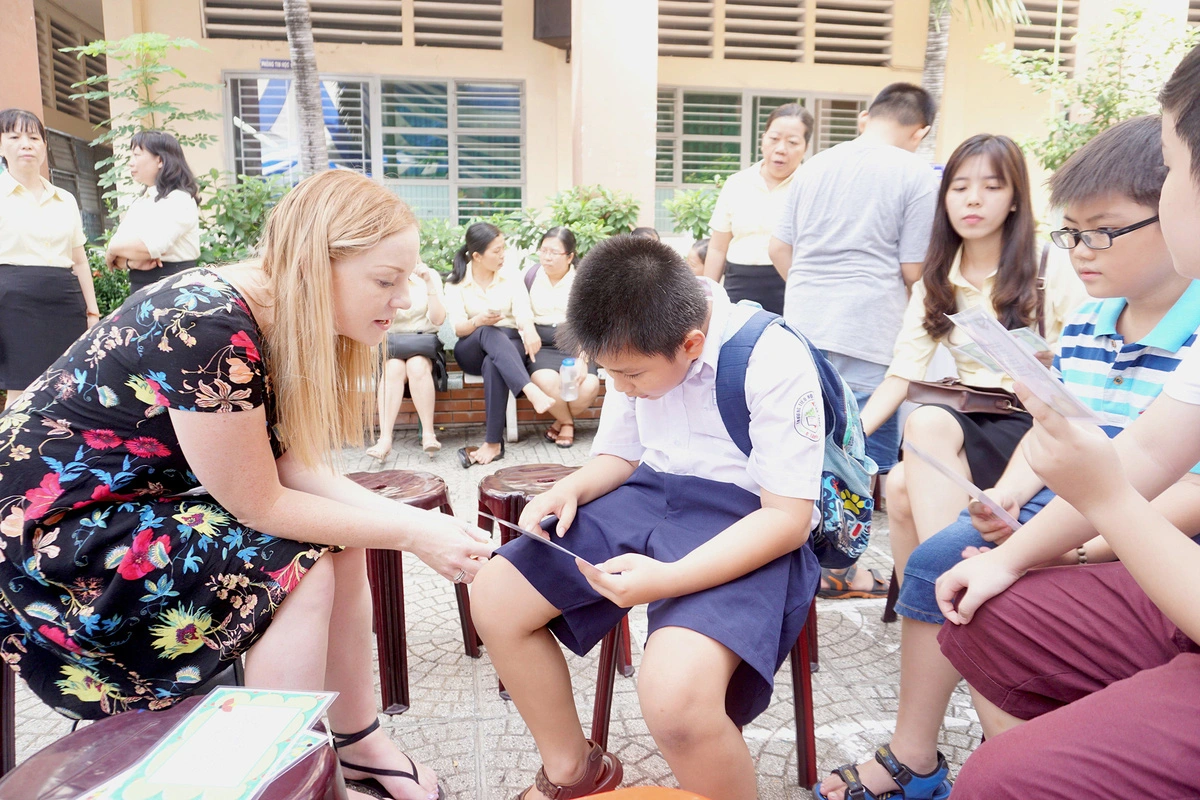The Ho Chi Minh City Department of Education and Training has decided to pilot the use of English as a second language in public school instruction, but challenges persist regarding the effective implementation of the program.
Tran Thuy An, principal of Minh Duc Middle School in District 1, Ho Chi Minh City, advised that the city should refrain from implementing it across all subjects and classes in schools.
She cited concerns over ineffective teaching strategies and the low English proficiency of some students as significant challenges.
Many teachers have not yet completed specialized English training courses.
However, An said that public schools should start integrating English as a second language into their curricula in accordance with a road map.
She suggested that high schools could begin teaching math and science in English, supported by native speakers during the initial phases, before expanding the program to include teachers of other subjects.
An recommended that Vietnamese teachers with strong English communication skills receive further training.
To improve interactions among teachers, schools should foster an environment where speaking English is mandatory and implement policies that encourage them to better their English skills.
Beginning with kindergartens, elementary schools
Le Xuan Quynh, program manager of languages at RMIT University in Ho Chi Minh City, said the city should start trialing the use of English as a second language in kindergartens and elementary schools first.
The capability of Vietnamese teachers, curricula, and access to support from native teachers must be taken into account in the process.
The main hurdle for the pilot program is that Vietnamese teachers have limited English skills.
While Ho Chi Minh City is the first area to implement the use of English as a second language in schools, the national government needs to establish policies that require universities across the country to train future educators in English.
Pedagogical schools need to immediately train students majoring in math, physics, and chemistry in English.
Support from foreign teachers a must
Tran Van Thy, an English teacher at Nguyen Thuong Hien High School in Ho Chi Minh City, stated that the key to teaching school subjects in English is fostering students' enthusiasm for communicating in English.
For this to work, schools need qualified English teachers and teaching methods that encourage students to use English regularly and continuously.
Thy also suggested that Vietnamese and foreign teachers should collaborate on curriculum design to help students improve their listening and speaking skills.
At Nguyen Thuong Hien High School, each English class has two Vietnamese teachers and one foreign teacher.
They have designed appropriate lessons based on students' ability.
Foreign teachers' support is crucial, but they should be selected by the municipal Department of Education and Training.
Do Minh, a former student at Le Hong Phong High School for Gifted Students in Ho Chi Minh City and now an employee at Microsoft in the U.S., recognized the significance of English for scholarship applications, international integration, and job prospects during his high school years.
He noted that his teachers at Le Hong Phong encouraged students to engage in conversations in English and immerse themselves in the language by watching and listening to English-language content.
Similarly, Le Chan, an IT consultant in Germany and a former student of Nguyen Thuong Hien High School, mentioned that while the school's curriculum did not offer many English listening and speaking classes, students had opportunities to practice their skills through English clubs organized by their peers.
The decision-making Politburo has previously directed the education and training sector to enhance international integration in education, highlighting the importance of improving students' foreign language proficiency -- especially in English -- with the goal of gradually establishing English as a second language in public schools.
Like us on Facebook or follow us on Twitter to get the latest news about Vietnam!


















































